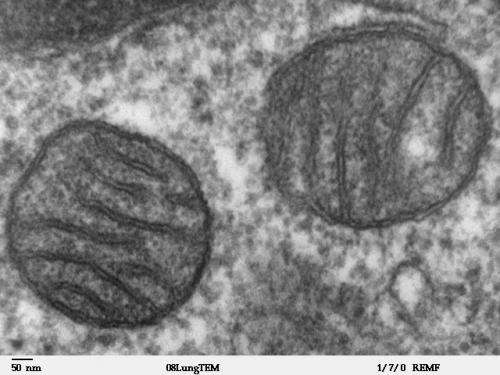#’Cheater mitochondria’ may profit from cellular stress coping mechanisms

“#’Cheater mitochondria’ may profit from cellular stress coping mechanisms”
If you want to watch Movies or TV series visit the Dizi.BuradaBiliyorum.Com

Cheating mitochondria may take advantage of cellular mechanisms for coping with food scarcity in a simple worm to persist, even though this can reduce the worm’s wellbeing.
These findings, published today in eLife, may help shed light on the evolution of cheating and cooperative behaviors within different organisms.
Mitochondria are energy-producing units within cells that likely evolved from bacteria. They have their own DNA, take in resources from cells, and in exchange provide the cell with energy. But some so-called ‘cheater mitochondria’ have harmful DNA mutations that may reduce their energy output and harm the organism. Why these cheater mitochondria persist despite their harm to the larger organism is not currently clear.
“Cooperation and cheating are widespread evolutionary strategies,” says lead author Bryan Gitschlag, a Ph.D. student at the Department of Biological Sciences, Vanderbilt University, Nashville, Tennessee. “While cheating confers an advantage to individual entities within a group, competition between groups favors cooperation.”
Gitschlag and his colleagues studied the roundworm Caenorhabiditis elegans to see how competing evolutionary pressures within its cells and in its environment might enable the cheater mitochondria to persist.
They measured the levels of cheater and typical mitochondria in the worm’s cells. They found that, within the cells, a protein called DAF-16, which helps cells to survive stress, is necessary for cheater mitochondria to multiply. When the worms face food shortages, cheater mitochondria become more harmful to their hosts, but only in those lacking DAF-16. “This shows that food scarcity can strengthen evolutionary selection against worms carrying cheater mitochondria, but DAF-16 protects them from it,” Gitschlag explains.
The results suggest that competing selection pressures within an organism and in its environment may shed light on why selfishness and cooperation often exist side-by-side among populations.
“The ability to cope with scarcity can promote group-level tolerance to cheating, inadvertently prolonging cheater persistence,” says senior author Maulik Patel, Assistant Professor of Biological Sciences at Vanderbilt University.
“As selfish mitochondrial genomes are implicated in numerous disorders, and cheating is a widespread evolutionary strategy, it will be interesting to apply our methods to study a broader collection of cheating variants and host species. This could allow us to better understand the development of mitochondrial disorders or the evolutionary principles underlying cooperation and cheating,” Patel concludes.
A ribosome odyssey in mitochondria
Bryan L Gitschlag et al, Nutrient status shapes selfish mitochondrial genome dynamics across different levels of selection, eLife (2020). DOI: 10.7554/eLife.56686
Citation:
‘Cheater mitochondria’ may profit from cellular stress coping mechanisms (2020, September 22)
retrieved 22 September 2020
from https://phys.org/news/2020-09-cheater-mitochondria-profit-cellular-stress.html
This document is subject to copyright. Apart from any fair dealing for the purpose of private study or research, no
part may be reproduced without the written permission. The content is provided for information purposes only.
if you want to watch Movies or Tv Shows go to Dizi.BuradaBiliyorum.Com for forums sites go to Forum.BuradaBiliyorum.Com
If you want to read more Like this articles, you can visit our Science category.




